In recent years, the use of dietary supplements has become increasingly prevalent, with millions of individuals turning to these products to enhance their health and well-being. While supplements can offer various benefits, it's crucial to be aware of potential interactions with prescription and over-the-counter medications. The combination of drugs and supplements can lead to unexpected consequences, affecting the efficacy and safety of both. This essay explores common drug-supplement interactions, highlighting the importance of informed decision-making and collaboration with healthcare professionals to ensure optimal health outcomes.
Understanding Drug-Supplement Interactions:
Drug-supplement interactions occur when the components of a supplement interfere with the absorption, metabolism, or elimination of drugs in the body. These interactions can lead to altered drug levels, potentially reducing effectiveness or increasing the risk of side effects. Conversely, drugs may impact the absorption or utilization of nutrients from supplements, affecting their intended benefits.
-
Grapefruit Juice and Statins: One well-known example of a drug-food interaction involves grapefruit juice and certain statin medications used to lower cholesterol. Grapefruit juice contains compounds that inhibit the enzymes responsible for breaking down statins in the liver. As a result, the concentration of statins in the bloodstream increases, leading to an elevated risk of side effects such as muscle pain and liver damage.
-
Vitamin K and Blood Thinners: Individuals taking anticoagulant medications, commonly known as blood thinners, need to be cautious about their vitamin K intake. Vitamin K plays a crucial role in blood clotting, and an excess can counteract the effects of blood thinners. Patients on these medications should maintain a consistent intake of vitamin K-rich foods, such as leafy greens, and inform their healthcare providers of any changes in their diet or supplement regimen.
-
Calcium and Tetracycline Antibiotics: Calcium supplements and dairy products can interfere with the absorption of tetracycline antibiotics. Calcium binds to tetracycline, forming insoluble complexes that are poorly absorbed in the digestive tract. To ensure the effectiveness of antibiotics, it is advisable to take them a few hours before or after consuming calcium-rich foods or supplements.
-
Iron and Antacids: Antacids, commonly used to alleviate heartburn and indigestion, can reduce the absorption of iron from both food and supplements. Iron is essential for the formation of red blood cells, and inadequate absorption may lead to iron deficiency anemia. Individuals taking iron supplements should avoid consuming antacids simultaneously and discuss appropriate timing with their healthcare provider.
-
St. John's Wort and Antidepressants: St. John's Wort, a popular herbal remedy for mild to moderate depression, can interact with various antidepressant medications. This herb induces the activity of enzymes responsible for drug metabolism, potentially leading to decreased levels of antidepressants in the bloodstream. Patients on antidepressant therapy should consult their healthcare providers before incorporating St. John's Wort into their treatment plan.
Preventing and Managing Interactions:
To minimize the risk of drug-supplement interactions, individuals should adopt several proactive measures:
-
Open Communication with Healthcare Providers: Patients must communicate openly with their healthcare providers about their supplement use. This includes providing detailed information about the types and dosages of supplements, as well as any changes in their regimen.
-
Regular Medication Reviews: Healthcare providers should conduct regular reviews of patients' medication and supplement regimens. This allows for the identification of potential interactions and adjustments to treatment plans if necessary.
-
Evidence-Based Supplement Use: When considering dietary supplements, individuals should prioritize evidence-based products with proven safety and efficacy. Reliable sources, such as reputable scientific journals and healthcare professionals, can guide informed decision-making.
-
Timing and Administration Guidelines: Proper timing and administration of medications and supplements can mitigate interactions. Patients should follow specific guidelines, such as taking medications with or without food, and spacing out the consumption of certain substances.
Conclusion:
In conclusion, understanding and addressing common drug-supplement interactions are crucial for promoting safe and effective healthcare practices. The widespread use of dietary supplements, coupled with the prevalence of various medications, underscores the importance of informed decision-making and collaboration between patients and healthcare providers. By staying informed about potential interactions and adopting proactive measures, individuals can navigate the complex landscape of drug-supplement combinations to achieve optimal health outcomes.


